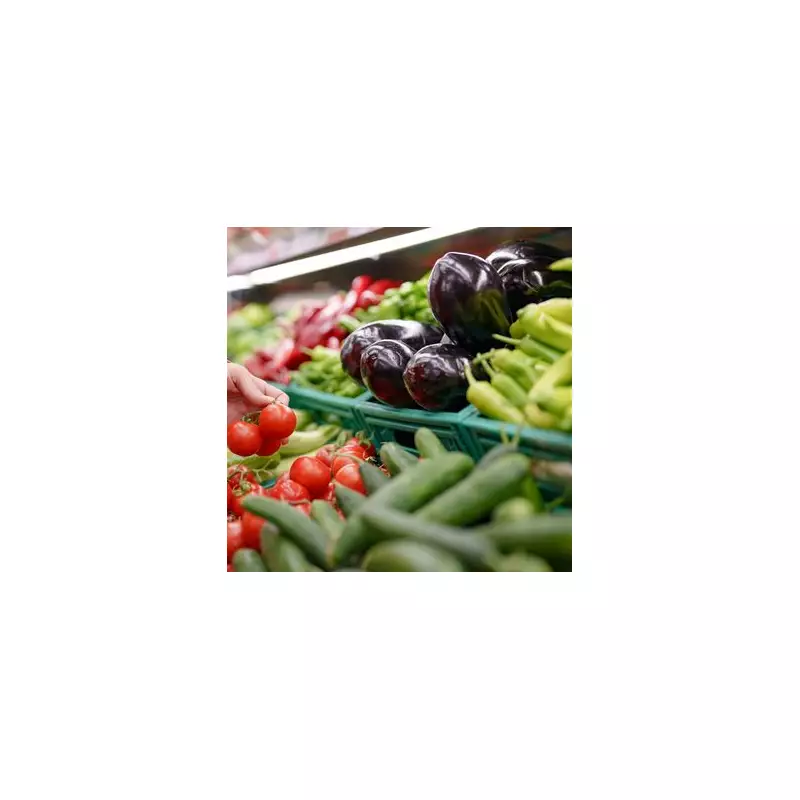
In an era of rising living costs, a resourceful mother has revealed how her simple kitchen habits can save families a staggering £1000 annually while dramatically reducing their environmental impact.
The Shocking Cost of Food Waste
According to the charity Waste and Resources Action Programme (WRAP), UK households discard an astonishing 4.7 million tonnes of edible food every year. This translates to approximately £1000 wasted by the average family of four - money that could be better spent elsewhere.
Teralyn Pilgrim, an author and mother-of-three from Oregon, transformed her approach to food after reading about children suffering from famine in Yemen, South Sudan, Nigeria and Somalia. "Even if I can't change how much food the world wastes, it feels good to look at this problem and say - with absolute honesty - that I have nothing to do with it," says Teralyn, whose book No Scrap Left Behind has become popular in the United States.
Transform Your Kitchen Habits
Teralyn employs a powerful mental exercise she calls the "hungry kid test" before discarding any food. She asks herself whether she'd feel comfortable throwing the item away with a hungry child watching. If the answer is no, she finds creative ways to reuse it rather than consigning it to the bin.
Her first recommendation involves getting organised. "Store food in clear containers and mason jars so that you can easily see what's in them," she advises. After clearing out anything mouldy or past its prime, she suggests placing regularly used items like flour and rice at the back of shelves, with less frequently used ingredients at the front where they're visible.
Smart Shopping and Cooking Strategies
Before heading to the supermarket, Teralyn recommends trying "shelf cooking" - creating meals based on ingredients you already own. "There are websites and phone apps that let you enter ingredients you have on hand and suggest what to make using those ingredients," she notes, mentioning Allrecipes.com, Plant Jammer, Super Cook and Love Food Hate Waste as valuable resources.
She also advocates adopting shopping habits common in France, where people often visit stores daily to purchase only what they need until the next day. "When you limit how much you buy and eat what you have, there is no reason for food to reach its expiration date," Teralyn explains.
Mastering Leftovers and Freezing
Reinventing leftovers is crucial to reducing waste. A Sunday roast can transform into Monday's sandwiches, Tuesday's stew and Wednesday's pie. Other creative ideas include using leftover mashed potato for gnocchi and stale bread for bruschetta or bread and butter pudding.
Your freezer can become your strongest ally against food waste when used correctly. Bananas becoming mushy can be frozen for smoothies, while oversized watermelons can become refreshing ice lollies. Teralyn emphasises proper preparation: cheese should be grated before freezing, mushrooms sautéed in butter, and vegetables blanched to preserve colour, flavour and nutrients.
She also shares expert tips for reheating leftovers to taste fresh. Microwaves only heat about one inch into food, requiring stirring during reheating. For dishes like lasagne, cutting them into one-inch strips ensures even heating. Previously fried foods need oven toasting, air frying or refrying to regain crispiness.
Advanced Storage and Usage Techniques
Proper food storage significantly extends freshness. Teralyn warns that certain ethylene-emitting produce - including apples, avocados, bananas, tomatoes and onions - should be kept separate from other fruits and vegetables to prevent premature ripening.
She recommends storing asparagus and herbs in water glasses, while leafy vegetables like lettuce and celery last longer when rinsed thoroughly and wrapped in aluminium foil while still damp.
Being truly waste-free means utilising every edible part of vegetables, from stalks to skins. Potato peels become delicious roasted snacks when drizzled with oil and baked. Broccoli stalks, once peeled, can be eaten raw with dip, shredded for slaw, or cooked alongside florets.
For surplus vegetables, pickling offers an excellent preservation method. Cucumber slices can be revived in old pickle juice, a technique that also works for carrots, squash, okra, turnips and red onions.
With food waste contributing significantly to greenhouse gas emissions and climate change, adopting even a few of these strategies can make a substantial difference to both household budgets and environmental sustainability.





